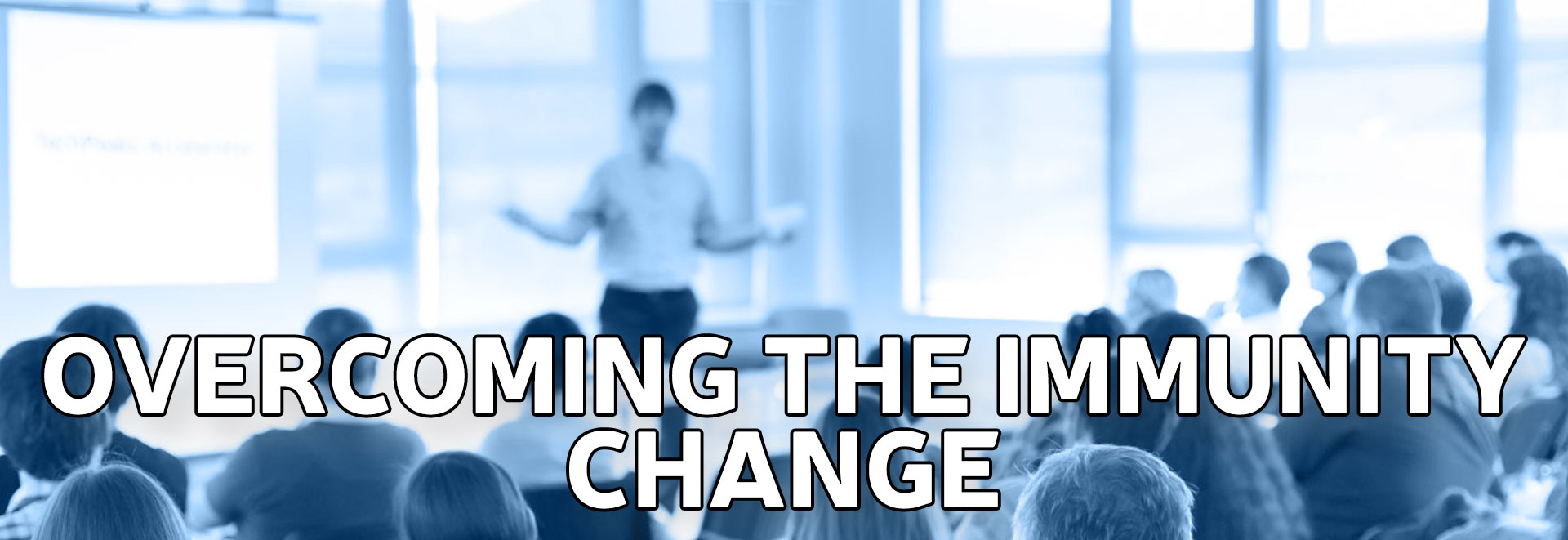
Overcoming the Immunity Change
Studies show that an estimated 85% of large scale change efforts – each involving millions of dollars – are destined to fail. This occurs not from intentional resistance and willful subterfuge, but is instead the result of unconscious dynamics that conspire to keep the status quo exactly as it is.
This training focuses on how leaders and team members unintentionally activate their own individual and organizational “immunity to change” mechanisms, and what they can do about it.
Most of us can relate to the expression: “The only thing that likes change is a wet baby. On a good day.”
We earnestly make New Year’s resolutions, only to have them become shadows by Groundhog Day, and the love we’ve lost by Valentines. What we do know about change: it’s hard, and it takes a really long time.
But maybe it isn’t all about getting a personal trainer who will push us to new levels of persistence and pushing through resistance. Harvard colleagues Robert Kegan and Lisa Laskow Lahey claim that when we fail at a goal we’ve set for ourselves, we might suspect that a kind of emotional immune system is secretly at work. Toiling to protect us from perceived threats that change would involve.
To arrive at lasting change, Kegan and Lahey state that you must dig deep to identify what could be in opposition to your goal. These hidden competing commitments are rooted in our individual worldviews, grounding our “big assumptions” about how things are in the world. And change results from altering the way we think.
In their book Immunity to Change: How to Overcome It and Unlock the Potential in Yourself and Your Organization, Kegan and Lahey lay out a process for overcoming obstacles. It’s a four-column immunity map that helps you understand what feelings are at play and how you are sabotaging your efforts.
Mapping your immunity to change
Making use of what you’ve learned
These columns form your immunity map, helping you see why you struggle to make changes. A solution must take your emotions into account.
You might test the assumption that presents the most significant obstacle in your life. Think of a low-risk scenario. Our career-changer might take a weekend off and see how her manager and colleagues respond. Is she really seen as less committed? Does slightly lowering the expectations for herself result in failure?
Given time to challenge a particular assumption, you may find your beliefs shifting in a way that frees you to pursue your goals with success.








 Get In Touch
Get In Touch 

